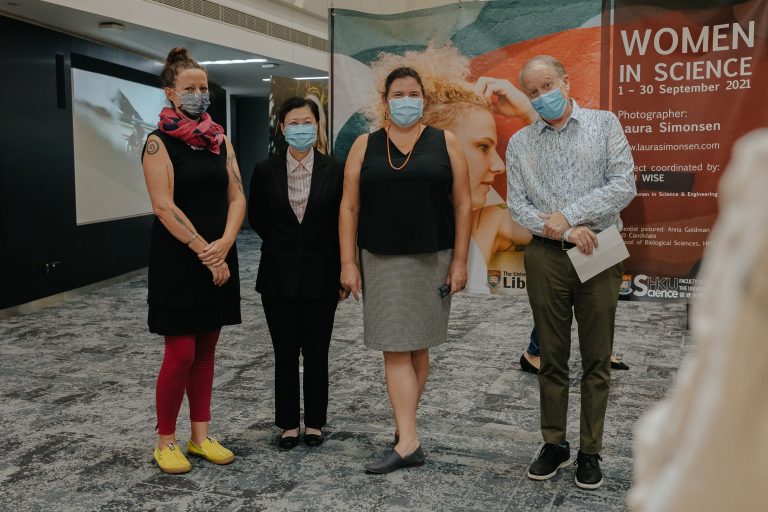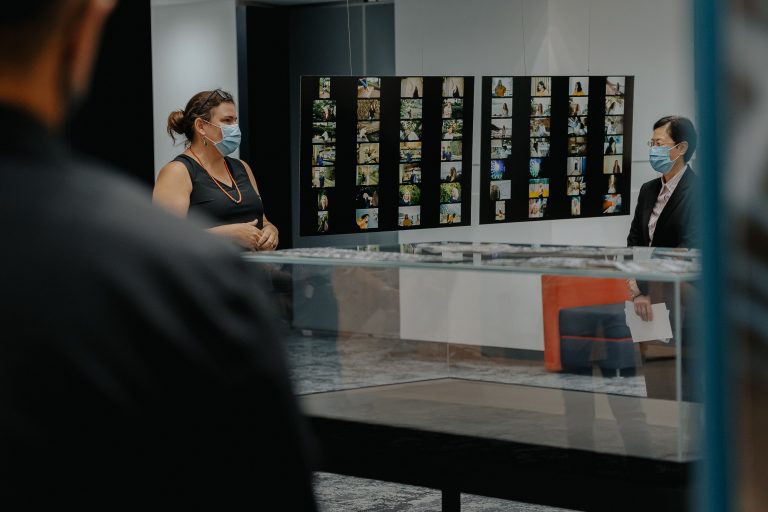Critical Zones Transdisciplinary Research
What is Critical Zones?
The concept of Critical Zones emerges in geochemistry, oceanography, atmospheric sciences, biology and ecology to describe the conditions necessary to sustain fragile terrestrial existence. Bruno Latour (http://www.bruno-latour.fr/node/838.html) then extends the original usage to connect the idea with political, social, artistic, philosophical and other necessarily entangled relations. In the Common Core, the Critical Zones is a broad range of initiatives enacted through a number of related courses in the Common Core, our Transdisciplinary Undergraduate Research Initiative, the Global-Action-Lab Exchange with Utrecht University around the More-Than-Human-City, and in our collaborations with the Hong Kong Sustainable Campus Consortium (HKSCC) and international partners in GLADE (Global Liberal Arts Design Experiments).
Research Fellowship on Sustainability and Water
The research fellowship invited undergraduate students to a 2-week intensive transdisciplinary research around water, critical zones, and sustainability in Hong Kong.
Student engaged with fundamental theories, methodologies, and rationales around conducting transdisciplinary research; practices, interventions, & cultural assumptions around water and Hong Kong, and; creative and critical reading, viewing, sharing, and writing. Through interactive activities, fieldwork, and mentorship, the fellowship sought to broaden students’ research imaginations, creativity, and flexibility, all essential for nurturing the next wave of thought leaders.
HKU-Utrecht University Exchange: Local and Planetary Flourishing
Critical Zones: Local and Planetary Flourishing is an undergraduate transdisciplinary research Global-Action-Lab between HKU and Utrecht University (Netherlands) that has been running since 2016. Co-directed by Professor Gray Kochhar-Lindgren—formerly the Director of the Common Core —and Dr. Rick Dolphin in Philosophy, Culture, and Media Studies at UU, the exchange focuses on building transdisciplinary collaborative, research, and project management skills for the students.
Transdisciplinary Minors on Critical Zones
The following Transdisciplinary Minors (6 courses) and Clusters (4 courses) align with the University’s commitment to the United Nations’ Sustainability Development Goals (SDGs) and address fundamental questions across multiple domains of knowledge and practice. Both the Minors and the Clusters appear on your Academic Attainment Profile (transcript).
Sustaining Cities, Cultures, and the Earth
The Human Life Span
Gender, Sexuality, and Diversity
Critical Zones Research Seminar Courses
We previously offered research seminar courses around Critical Zones inCCHU8003: Critical Zones – Our Toxic Environment and the Question of Well-Being. The course is currently not offered.
Student Research Project on Gender, Cities, and Well-Being
The Critical Zones Project: Gender, Cities and Well-Being was a peer-mentored research programme funded through the Hong Kong University Grants Committee Outstanding Teaching Award from 2020 to 2022. The initiative developed student transdisciplinary research projects aligned to the three United Nations SDGs of Good Health and Well-Being, Gender Equality, and Sustainable Cities and Communities.
Alignment to UN SDG
Women in Science Photography Exhibition
Date: 1 September 2021 – 30 September 2021
Location: 2/F Exhibition Space, HKU Main Library
Common Core was proud to support the HKU Women in Science and Engineering (HKU WISE) group with the exhibition by photographer Laura Simonsen titled Women in Science, to be held at the Main Library. Featured photographs included female scientists from HKU’s Faculty of Science as portraits and undertaking fieldwork.
The exhibition commemorated 2020 as the 100th anniversary of women’s suffrage in America and follows on from the exhibition “100 Years of Women’s Suffrage in America” (on display at the HKU Main Library), which told the lives of eight notable suffragists in the movement: Susan B. Anthony, Elizabeth Cady Stanton, Mary Church Terrell, Daisy Lampkin, Carrie Chapman Catt, Lucy Stone, Sojourner Truth, and Lucretia Mott. Beginning in the mid-19th century, successive generations of women’s suffrage supporters worked tirelessly to achieve what many Americans considered a radical change in the Constitution – guaranteeing women the right to vote. By spotlighting these eight figures who played key roles in the struggle for women’s suffrage, together with the progress for gender equality within the field of science, the exhibit highlights the effort of women to establish a landscape for greater equality.
Organisers: Dr Caroline Dingle (Faculty of Science, Convenor of HKU Women in Science and Engineering)




